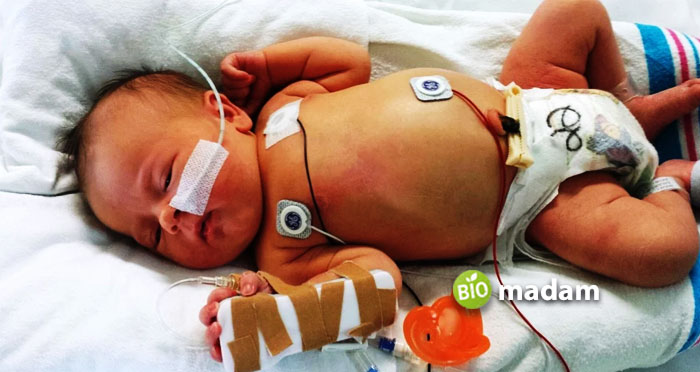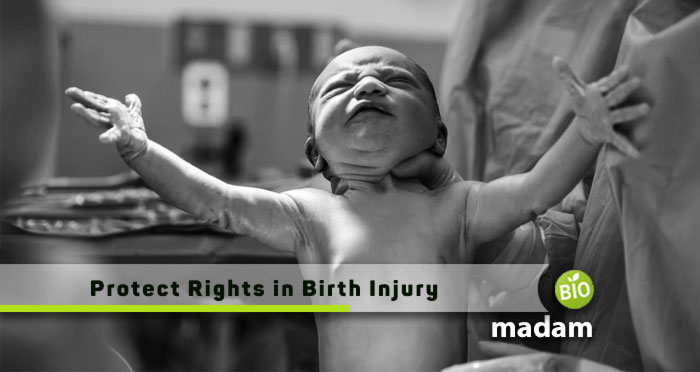When a child is injured during birth, it can severely impact a parent’s life. The National Institutes of Health reports that 1 in 25 babies are born with health issues. These conditions require long-term care and regular treatment from medical professionals to keep children healthy and happy. In some cases, disabilities or other problems are so severe that children may never grow up to lead healthy lives without the help of parents and caretakers.
These types of injuries are also costly. The U.S. The Department of Health and Human Services (HHS) reports that over $20 billion has been spent on medical costs related to birth injuries each year, with approximately 5% of all hospital expenses in this country attributed to complications during pregnancy or birth.
Common Types of Birth Injuries
Both doctors and mothers can cause disabilities during the birth process, meaning that your child’s injuries were not unavoidable or due to unpreventable complications. If you have questions about birth injuries caused by malpractice or other wrongful actions against your baby, speak with a birth injury attorney to help you understand your options for compensation. This way, you can protect your rights and get the ongoing care for your child that they need.

These six common birth injuries may affect babies in any part of the world. These issues could lead to lifelong disabilities, but some require ongoing medical treatment while others do not.
1. Cerebral Palsy
Cerebral Palsy is a condition in which muscles and nerves in the body fail to work together correctly. This results in a reduced ability to control movement and posture. The condition can also cause speech and learning difficulties and affect other body parts, such as the digestive system. Cerebral palsy often has no known cause, but it sometimes develops after birth when doctors or nurses do not respond quickly enough to a baby’s distress during the birthing process.
2. Erb’s Palsy
Erb’s Palsy is a type of nerve damage that occurs after the brachial plexus, a collection of nerves in the neck and shoulder region, are torn or stretched. During labor, for example, this can happen when a baby’s shoulders are pushed into the mother’s pelvic bone. This can lead to loss of movement in an arm and difficulties with eating, speaking, and other daily activities.
3. Birth Asphyxia (also known as “Birth Trauma”)
Birth asphyxia occurs when a baby experiences inadequate oxygen supply during birthing. This can lead to brain injury and developmental disabilities. Outcomes from birth asphyxia depend on the degree to which oxygen was cut off from the child’s brain, but even a mild case can cause permanent physical or mental disabilities.

4. Brain Hemorrhages
Brain hemorrhages occur when small vessels break inside a baby’s head during birth. They can cause seizures, irritability, and developmental disabilities, among other things. In some cases where prenatal bleeding occurs in the brain of a fetus, parents may consent to an early birth to save their baby from suffering during gestation or labor.
5. Brachial Plexus Injuries (Erb’s Palsy and Klumpke’s Palsy)
Brachial plexus injuries occur when the nerves in the brachial plexus, which control movement and feeling in an arm, are stretched or torn during birth. If these nerve tissues get pinched against a mother’s pelvic bone during labor, it can stretch or tear the nerves and cause paralysis in an arm. This injury is more common among large babies for their gestational age or those who experience shoulder dystocia during birth.
6. Brain Injuries and Bleeding
Birth-related brain injuries can happen if a doctor does not respond quickly to a baby’s reduced oxygen levels during labor. This could include bleeding inside the brain, often called a hemorrhage, or if any part of the skull bones becomes separated from other bone tissue.
Compensatory Damages For Newborns With Disabilities
One type of claim that many parents face after a birth injury is the request for compensation for caring for a child with disabilities. According to HHS, about 7% of children born in the U.S. every year have health problems that cause them to experience some degree of disability or particular need and require additional care from parents. About half of these children have mild disabilities, while others have more severe injuries.

In some states, parents may be eligible for financial damages to cover ongoing medical expenses and care and other costs such as lost earnings because of time spent on the child’s rehabilitation. Parents should visit with an attorney who specializes in newborn injury cases to find out how much compensation they would be entitled to receive.
In the unfortunate event that a child is born with a permanent disability due to medical negligence, parents may want to work with an experienced attorney to help them receive the compensation they deserve. Birth injuries are serious, so you should seek legal help as soon as possible to ensure that your rights are protected.

Hi, they call me Jenna, and I am also known for achieving a gold medal during my Ph.D. in science life. I always had a dream to educate people through my utmost writing hobby. So, I chose this blogging path, and Biomadam gave me this opportunity to present for them. I now stand to entertain you. Continue reading my articles & discuss if you’ve any confusion through the comment section below.

